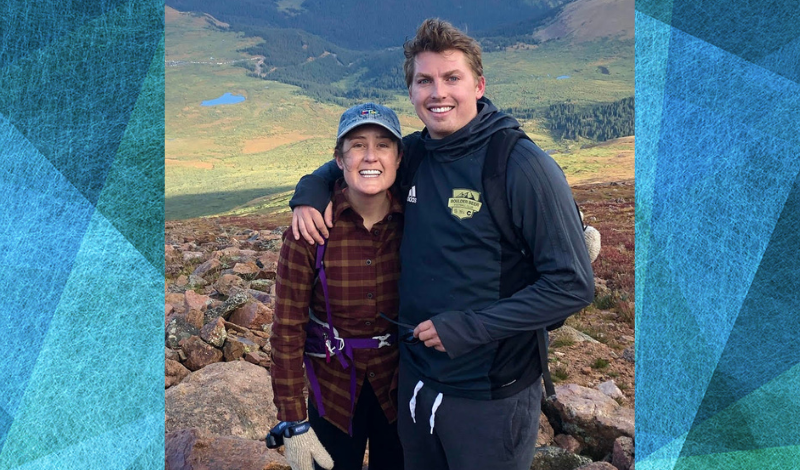
Senior Year Disrupted In a Flash
In May, 2014, Corey Wood was your typical 22-year old college student. A senior at Cal Berkeley, she was juggling classes, a job, and an internship, all in preparation to graduate and begin her adult life.
She noticed a very small flash in her right eye. It was so slight, in fact, that she thought little of it. When she went for an eye exam for new contact lenses, though, the opthamologist noticed a small bump behind her right eye. Not terribly concerned, he told her to come back in a month to see if it had changed at all. When, at that follow up appointment, the bump seemed to have grown, Corey was told to see an eye tumor specialist.
Because of not only the size, but also the color of the bump, the doctor told Corey she should have a full body scan. That scan “lit up like a Christmas tree.” Corey, a strong, fit, and healthy young woman, was not terribly concerned. She assumed it was going to come back benign. A needle biopsy would prove her wrong.
“I was walking down the street in San Francisco heading to a brewery with friends when I got a call from my primary care doctor telling me that I had adenocarcinoma. I had never heard of it. I remember thinking it was odd, but I wasn’t at all freaked out. In fact, I went ahead to the brewery and had a great night.”
The next day, in a follow up conversation with her doctor, Corey began to learn just how serious her diagnosis was: Stage 4, with metastases already evident in her bones. Told she was going to need medical intervention and, almost as important – a strong support system, Corey packed up her belongings and moved back home to be with her parents.
Then Came Hope: Biomarker Testing
Lung cancer in your 20s is destabilizing to say the least. Now in full panic, Corey began to frantically Google stories of hope for lung cancer patients. In her search, she learned about mutations and the importance of testing for them. She insisted her doctor send her tissue out for testing. Initial testing all came back negative, in part because of the sample size. Additional tissue sent for Foundation One Testing following surgery to remove the nodules in her left lung chest wall, however, was the ticket: Corey tested positive for the ROS1 mutation.
Armed with this new information, Corey’s medical team was able to come up with a treatment plan of oral medication. Three months later, her scans came back clear. Needless to say, Corey, her parents, and her team were thrilled.
One year later, her scans remained fairly stable, but a brain MRI lit up. By this time, Corey was feeling pretty well living with lung cancer. After she learned of a clinical trial in Colorado where her sister and brother in law live. She packed up, headed to the Rockies, and got a job at a hip, cool start-up. Medication kept things steady for three years.
The future is bright for Corey Wood
In May, 2018, Corey’s tumor started to grow again. Her doctor tried to treat her with a medication which is highly successful in treating Corey tested positive for the ROS1 mutation, but was unsuccessful for her ROS1. Initially discouraged, she, again, learned of a clinical trial back in California. She responded beautifully to the treatment which quickly cleared up the brain tumor. Currently on a chemotherapy regimen every three weeks, Corey’s scans remain stable.
“I am really happy right now. Everything looks good. I work out six days a week, live in a great town with my boyfriend, two friends and two black Labs, have a job I love at Foundation Medicine – the place who did my testing – it’s all good. I don’t make a big deal of the fact that I have lung cancer. It’s definitely hard, and it takes strength to be happy…but I am!”

